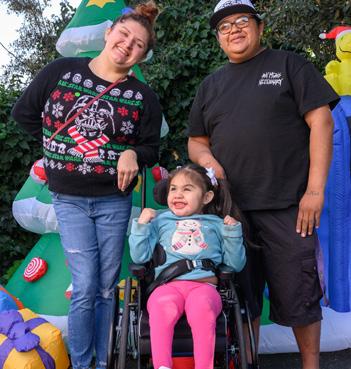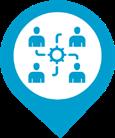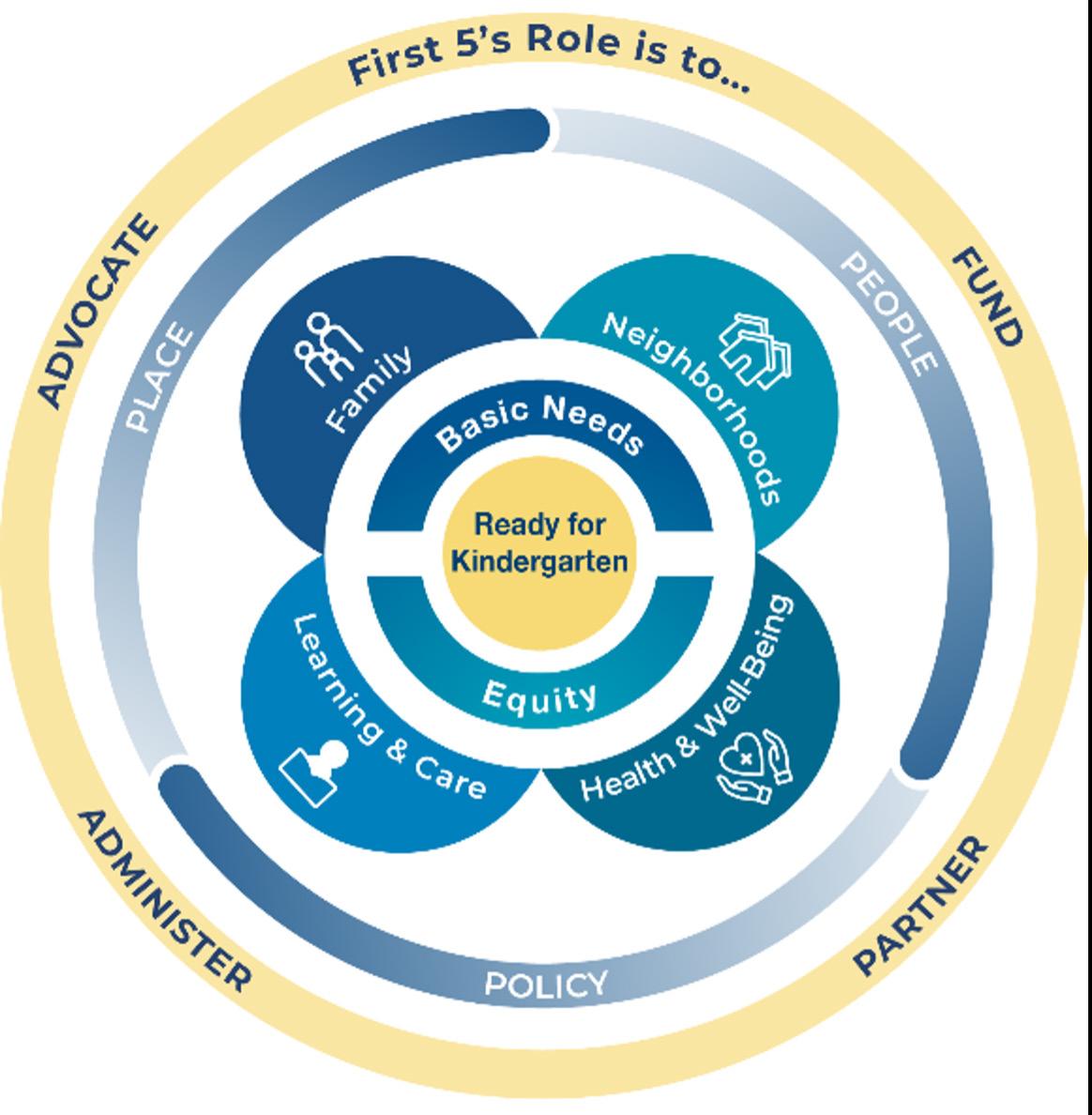KINDERGARTEN READINESS IN ALAMEDA COUNTY 2021-22 Executive Summary

Children are not innately ready or not ready for kindergarten. They thrive when they grow and develop in environments that support and nurture them and their families. This requires community conditions that position families for success—well-paying jobs, access to quality, affordable early care and education, transportation, health care, safe, inviting places to live, play, and connect. It also requires freedom from discrimination rooted in racism and classism. According to parents/ caregivers, ECE professionals, and kindergarten/TK teachers, readiness declined during COVID-19. Findings from this year’s report show that 33% of parents believe their child is fully ready for kindergarten compared to 44% in 2019. The 2021-22 Kindergarten Readiness Assessment (KRA) findings and recommendations show how our county may improve kindergarten readiness in the overlapping environments that influence children’s readiness—communities, families, and schools.
Every two years since 2008, First 5 Alameda County (First 5) has sponsored a Kindergarten Readiness Assessment (KRA) to inform equitable programs, policies, and investments for children prenatal to age five, with the goal of ensuring that communities, families, and schools have what they need to support kindergarten readiness.
The 2021-22 Alameda County KRA builds off findings from prior years and is framed by a model of readiness that acknowledges the effects of systemic inequities on kindergarten readiness. First 5 prioritized a participatory, community-based research approach to study kindergarten readiness and ways it may have been affected by the COVID-19 pandemic.
Over time, the studies have consistently indicated that factors predicting readiness are closely associated with socioeconomic conditions rooted in structural racism and classism and public disinvestment in neighborhoods with primarily Black and Brown residents.

Participatory and Responsive Approach

As part of First 5’s intentional commitment to equity, we have evolved our organizational practices, including our approach to data and research. The KRA narrative began to incorporate the changes in 2015, with substantial shifts in the 2017 KRA framing. Consistent with this trajectory, the 2021-22 KRA process was designed to be participatory through the inclusion of a Research Advisory Group. The group was composed of diverse parents/caregivers who were compensated for their time, educators, representatives from communitybased organizations, and policymakers. Advisory group members provided input on survey design, recruitment and outreach, interpretation of the results, and the final report recommendations.
Furthermore, the approach to the 2021 study was shaped through extensive consultation with the community and a survey of school district partners. Given the uncertainties and challenges caused by the COVID-19 pandemic and through engagement with community partners and school districts, the 2021 study was redesigned to forgo teacher assessments of children entering kindergarten in favor of surveys of parents/ caregivers, kindergarten/transitional kindergarten (TK) teachers, and early care and education (ECE) professionals.

1 | 2021-2022 Kindergarten Readiness in Alameda County Executive Summary
COMMUNITIES
FINANCIAL STABILITY
Address Poverty and Ensure Basic Needs are Met
KEY FINDINGS
• Family income was strongly related to readiness.
• Families in the study who participated in the Oakland Resilient Families guaranteed income pilot reported significantly higher readiness.

POLICY RECOMMENDATIONS
• Support policies and programs that increase job creation and workforce development with livable wages, economic supports like guaranteed income, and expand programming that supports families’ basic needs.*
• Strengthen policies and practices that expand access to quality affordable housing and utility assistance.*

THRIVING COMMUNITIES
Invest in Thriving Neighborhoods
KEY FINDINGS
• 65% of families indicated help connecting resources was important to them; only 12% of all families had actually received this kind of assistance.
• Lower-income families, families living in lower-income neighborhoods, Black or Hispanic/Latino families, and monolingual Spanish-speaking families were more likely to say community supports are needed.
POLICY RECOMMENDATIONS

• Invest in community-driven equitable economic development for communities impacted by structural racism that has resulted in disproportionate rates of poverty.*
• Increase identification of and support for children with special needs, including early screening and intervention services through pediatric visits and community.*
• Advance policies that promote family-friendly neighborhoods through investments in public schools, parks, playgrounds, affordable housing, transportation, accessible libraries.*

• Support strategies and programs that improve timely access to community supports through family navigation and care coordination.
• Increase family leadership opportunities and civic engagement.
• Double-down on place-based strategies and intentional community and public partnerships.
2 | 2021-2022 Kindergarten Readiness in Alameda County Executive Summary
2019 44% 33% 2021-22
According to parents/ caregivers, 33% of children were fully ready for kindergarten compared to 44% in 2019. Structural inequities compounded by the COVID-19 pandemic have impacted children, families, and communities.
FAMILIES
FAMILY HEALTH & WELL-BEING
KEY FINDINGS
• Children who attended wellchild visits had higher readiness. In addition, children whose parents/caregivers reported fewer concerns about their child’s mental health also had higher readiness.
• Almost 4 out of 10 children missed a health check-up during the COVID-19 pandemic.
• Among children with special needs, 28% were unable to access the professional help they needed during the pandemic.
• 67% of caregivers expressed concern about their child’s mental health during the pandemic.
Improve Access and Navigation to Family Health & Well-Being Supports

POLICY RECOMMENDATIONS
• Improve systems to expand access to affordable, culturally responsive mental health services and supports for families and children within the community. *

• Invest in programs, services, and policies that are affirming and responsive to the cultural and language needs of communities to address historical inequities and mitigate current experiences of discrimination.*
• Invest in family resource centers and provide access to community resources and navigation support.

• Continue policies that were implemented during the pandemic to improve access to services and benefits enrollment (e.g., Medi-Cal continuous eligibility, free quality school meals).
• Invest in parent/caregiver peer groups, including those that are culturally and gender specific (e.g., dad’s groups, Afro-play, LGBTQ+), support networks, community building, and opportunities for leadership.

• Improve systems to expand access by eliminating barriers like long applications, frequent renewals, and Medi-Cal premiums and co-payments.

EARLY CARE AND EDUCATION
KEY FINDINGS
• Families reported needing activities for young children and child care as their highest priority support.
• Children in higher-income families were significantly more likely to attend licensed child care, as were children who identify as White, Asian/Pacific Islander, or multiracial. Children in monolingual Spanish-speaking households were less likely to attend licensed care.
Increase
Access to Affordable, Quality Child Care and Culturally Appropriate Early Learning
POLICY RECOMMENDATIONS

• Increase access to affordable, quality child care options that meet the needs of families.*
• Expand apprenticeships and workforce pipelines via early care and education for parents/caregivers to provide access to secondary education.
• Expand quality development/educational experiences for children in family, friend, and neighbor care (e.g., partnership with libraries, parks, and recreation).
• Increase child care-based food programs to support provider and family food security.
3 | 2021-2022 Kindergarten Readiness in Alameda County Executive Summary
SCHOOLS
KINDERGARTEN TRANSITION SUPPORTS
Expand Access to Kindergarten Readiness Activities and Transition Supports
KEY FINDINGS
• Use of kindergarten transition supports, especially among fathers, was linked to higher readiness.
• Use of kindergarten transition supports dropped from 2019 (e.g., 87% visited the school in 2019, while 44% visited in 2021).
• Some transition supports were more likely to be offered by elementary schools in 2021-22 compared to 2019 (e.g., parent-teacher meetings, home visits), while others were less likely (e.g., kindergarten orientations).
POLICY RECOMMENDATIONS
• Expand access to kindergarten readiness activities and transition supports that are accessible to all families within their community.
• Promote policies and practices that intentionally engage and welcome fathers and historically underrepresented family members in programs and services.
SUPPORTED EDUCATORS & SYSTEMS

Support Educators and Education Systems to Promote Success for Children
KEY FINDINGS
• 88% of kindergarten teachers reported feeling stressed. Educators who reported high levels of stress were over four times more likely to say they plan to leave the profession.
• Early care and education (ECE) professionals experienced the greatest changes to their hours and income during COVID-19: 49% reported decreased hours, 43% decreased wages, and 57% decreased household income.
POLICY RECOMMENDATIONS

• Increase access to affordable, quality mental health and self-care resources for ECE professionals, educators, and classroom-based supports for children.*
• Support communication, collaboration, and partnerships between the home, informal care settings, early care and education professionals, community programs, and schools.*
• Support policies and practices that expand family navigation and care coordination services at ECE settings and schools.*


• Provide educators with supports to mitigate learning loss and professional development and training to support students’ wellbeing.
• Advance policies and supports for professional development, capacity building, workforce diversification, and equitable compensation and working conditions that support providers and quality care.
SUPPORT OF KINDERGARTEN READINESS
Throughout the report, see examples of First 5’s local programming, investments, partnerships and policy advocacy that supports kindergarten readiness.

4 | 2021-2022 Kindergarten Readiness in Alameda County Executive Summary
Data from More Than
3,000 Alameda County Community Members

2,015 parents/caregivers
694 early care and education professionals
284
TK and kindergarten teachers
Data for Action


As a result of this participatory approach and commitment to using data and research to support community-led, family-centered programming, policy, and investment, early childhood stakeholders now have access to the largest local data set available that represents the experiences and needs of thousands of parents/caregivers, ECE professionals, and teachers during the COVID-19 pandemic. The findings and corresponding recommendations are intended to help shape a policy response that supports communities, families, and schools in addressing inequities and disparities that have been exacerbated since the onset of the pandemic.
Family experiences and community conditions often differ due to underlying, structural conditions tied to classist and racist policies that can be masked when we look at the result of all families at once. To support an equity-centered approach to data collection, analysis, and reporting, we oversampled in neighborhoods that have experienced historic disinvestment and have been disproportionality impacted by COVID-19, and we have intentionally disaggregated results by neighborhood, income, race/ethnicity, language, and gender. Using the data, we make recommendations for policy change, programs, and/or investments that advance equity.
Supporting Kindergarten Readiness Through an Early Childhood System
Through partnerships, collaboration, and strategic investment, our county can help to create the conditions required for all children to enter kindergarten ready to succeed. The findings and recommendations in the 2021-22 KRA reinforce a systems-based approach to early childhood that centers equity and basic needs. First 5’s programming, investments, and policy agenda are multipronged and cross Place, People, and Policy to improve conditions in the areas we support— Neighborhoods, Health & Well-Being, Learning & Care, and Family.
Building an equity-centered early childhood system of care requires the prioritization, commitment, and investment of a cross-section of stakeholders, including parent advocates and leaders, public systems, community-based organizations, and philanthropic organizations. Partnerships are also crucial to ensure that systems serving families— education, health, social services, and others—are integrated and coordinated, including warm hand offs between systems to support families in accessing the care, resources, and services they need.

5
2021-2022 Kindergarten
in Alameda County
|
Readiness
Executive Summary



















